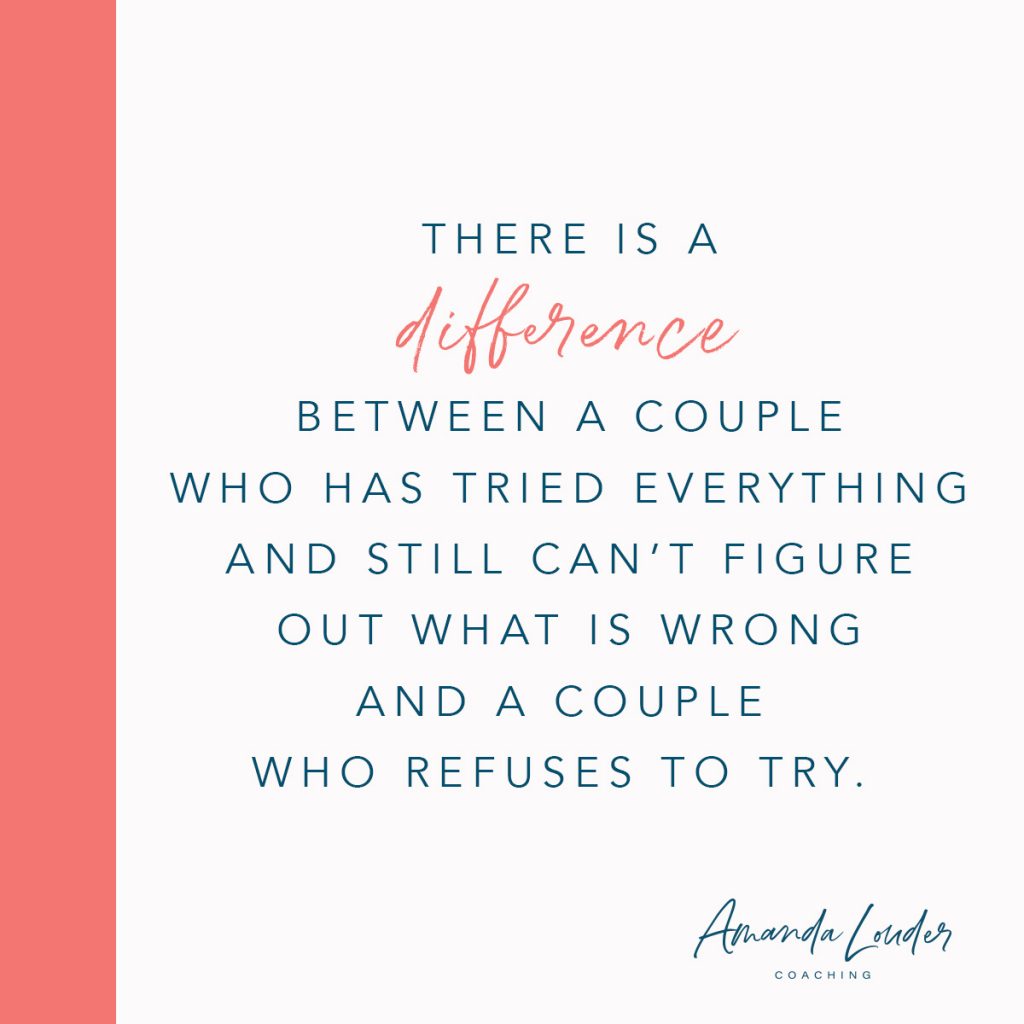
Is the desire for your spouse gone – or maybe it’s the other way around?
Are there parts of your human imperfect self that you do not desire and would rather avoid looking at?
How do you know the difference?
Maybe it is easier to blame others – rather than facing the challenge of looking deep inside yourself.
If you are having these questions or concerns – Podcast #104 is jam packed with information for you.
I will discuss righteous desires, men and women’s perspective, fears, validation and how to approach the topic when sex has completely shut down.
Download your FREE Worksheet!





Show Notes:
Follow Amanda on Facebook and Instagram.
Join Amanda’s Private Facebook Group.
References for this episode:
Show Summary:
It is the desire of just about every man and woman on the planet to be desired by someone else. Preferably to be desired by the person they desire.
What I run into quite often is
- We do not find our spouse desirable
- Our spouse doesn’t find us desirable
But, what I often find is at the heart of these matters is that we don’t find ourselves desirable and therefore we project that onto our spouse or because we don’t desire ourselves we do everything in our power to try and be undesirable to our spouse. Now, most of this is completely unconscious. It’s not done on purpose. But it happens nonetheless.
So let’s dig into this a little bit more.
When we are babies and young children, our sense of self is shown to us by our loved ones. In a good family, our parents and siblings are cooing over us and adoring and kissing every inch of us. They love our fat rolls and our funny noises. Therefore we feel very loved and validated. As we grow and mature, we are supposed to develop our own sense of self – a self that is not necessarily reflected back to us, but an internal compass that guides us. We hopefully develop and understand our own worth, not as a reflection of what we are getting from others, but what is inherent. Unfortunately, many of us do not do that.
When we fall in love, we fall in love because this person is reflecting back to us all of the things they love about us, so that means we can love those parts too. We feel loved and validated again by someone who is CHOOSING to feel this way, not someone who has to because it’s biological. This is a normal process. But once we are married, and we settle in, often what we see being reflected back at us is the parts we don’t like about ourselves. This is also a normal part of the process as well. It is one of the reasons why I think we have marriage, so that we can see these parts of ourselves that aren’t so great and work on them to become the best person we can be. Unfortunately, because most of us are emotionally immature, we don’t use this opportunity to grow and become better, we use it as an excuse to:
- Not like ourselves – beat ourselves up.
- Not like our spouse for bringing these kinds of things out in us.
Instead of looking at how they could be right, we blame them for making us feel rotten about ourselves and our relationship (which if you’ve been listening to me for a while, you know that people can’t actually make us feel anything.). What is actually happening, is that there is something inside of us that tells us that what they are saying is true, and we don’t like it. So it’s not actually them we are mad at, but ourselves. But, we don’t see that. Self-deception is very easy. And it’s much easier to blame others than to take a hard look at ourselves and how we are contributing to the dynamic in our relationship.
Now, that’s kind of aerial view of what we are discussing today. Let me give you an example.
So I of course have many women coming to me who have seen a problem in themselves and their marriage and they want to fix it, and this is great. But I also I have MANY MANY husbands that come to me, basically in attempt to fix their wife. Sometimes it’s the wife that comes to me saying “Apparently I need to fix this, because my husband is so unhappy.” But they don’t see the point themselves. They are just trying to appease their husband. But many times it’s the husband. They are the higher-desire partner in their relationship and their wife has low-desire or many times, basically no desire. Many of these women have suppressed their sexuality and they are completely resistant to any sexual advances. And the husbands are in pain and desperate for someone to please fix her.
In this scenario, we usually have a couple of things at play. First we have a husband, who loves his wife and wants to connect with her and show her. He’s flirty, and wants to touch her and show her how much he desires her. He understands that this is good and right and wants this for himself and for the marriage. When he is turned down again and again he can maybe deal with it ok at first, but he often pouts, whines, and cajoles. Maybe he tries to make her feel guilty and manipulates her into having sex to get the “release” so that he won’t turn to masturbation or porn. But when his advances are repeatedly rejected he feels defeated and worthless. He just wants the pain to stop.
Now the wife, because she has (probably unknowingly) suppressed her sexuality, she often see his advances as unholy and unworthy. She sees them as an annoyance and something to be avoided at all costs. She doesn’t like being pressured and she doesn’t like being made to feel like she is broken and needs to be fixed. She often holds herself at a higher regard for being strong enough to repeatedly push off his advances. She sees him as just wanting SEX and to be physical without him actually wanting HER. She doesn’t feel emotional connection from his advances. Maybe she wishes her desire was higher so that it wasn’t this constant pressure and she didn’t have all this anxiety. But, often she is unwilling to do much about it. It isn’t worth her time to figure this out because she’s got too many other things on her plate and he’s just one more person than needs taken care of. Sometimes, with enough pressure she will give in and give him duty sex, which isn’t fulfilling for her…or him.
This is at the scenario I see OVER and OVER and OVER.
And there are multiple problems on BOTH sides. Both partners see themselves as the righteous one…he wanting it because it’s good and right and it’s what is supposed to happen in a marriage. She seeing herself that way because she isn’t succumbing to the natural desires he is…in fact, she’s done such a good job, she doesn’t even have those desires any more.
So how do we untangle this messy web of lies that both are telling themselves and each other?
For the husband – he needs to understand where she is coming from. He needs to understand that his desire for her feels like pressure, even if he isn’t meaning it that way. That her, not having desire doesn’t mean she is broken. It isn’t his job to fix her. There is nothing to be fixed. She is just fine as she is. She actually has everything inside of her she needs to, she just needs to be given the space to figure it out for herself, if she wants. Now, I know there are plenty of women who don’t want to. That even when their husband has backed off, trying to create that space for her, she doesn’t step up to learn things on her own. My heart goes out to this couple. It’s hard on both sides.
The husband needs to decide who he wants to be in this situation? What are the results that he wants. If we think about our thought model, we kind of need to work backwards. Now remember, the results are his result. Yes, it would be great if he could control the outcome. But since he can’t control his wife, then he has decide what he wants HIS results to be. I would guess he wants his results to be something like “I show up as a husband who loves his wife and as a husband who is desirable.” In order to produce those results, what actions does he need to take? What does it look like to truly love his wife and accept her for who she is? What does it look like show up as a husband who is desirable. I imagine several conversations that look something like this.
“My beautiful wife. I understand that you have so much on your plate. You do such a wonderful job taking care of our children and the house and everything else you have going on. Thank you so much for all you do. I would like to help you create some time for yourself. How can I help you do this? Can I help with some things around the house? Can I take care of the kids so that you can take a bath in peace? I want to take care of you. Please help to know what you need most.”
Now, you notice here, that there is NOTHING about sex. You are showing her that you want her to be happy and being taken care of because you genuinely love her and care about her.
When you have done this for quite a while, building up that trust, creating that result that you wanted, it’s time for another conversation. This conversation is not “look at all I’ve done for you and now it’s time you do this for me.” No. That will completely remove all the trust that has been built. It tells her that the ONLY reason you did those things was for sex. But once again you make it about how much you love her and you want this for the two of you. It’s really important to notice your thoughts and feelings going into it. Are you sincere? Is it coming from a place of love? Or is coming from a neediness or desperation? Is this coming from a place where you feel like you need sex for your own worth and validation or can you validate yourself? Neediness is not desirable in a spouse. A spouse is much more desirable when they validate and take care of themselves and serve out of love. Here’s more of a conversation…
“I know that sex has not been a priority for you. But I feel like it is something really important for our marriage. I want to show you how much I love you in this way. I want to take care of you in this way, just as you have been so good at taking care of me and our children in other ways. Can I show you how much I love you?”
Hopefully, you will put these conversations into your own words. Now, you may still get resistance. This is not a guarantee. But if she is still unwilling, then it’s time for appropriate pressure. This is not the pressure you have shown her before, coming from neediness. This pressure comes from love for your spouse and to love yourself enough to know that you are desirable. It goes something like: “I feel that this is a very important part of our marriage that I want to share with you. If you are unwilling to learn about your own desires and make this a priority for yourself, then I think we need to get some help.” If she is still unwilling to get help, then you have some decisions to make. And those decisions are completely up to you.
Now, let’s look at it from the wife’s perspective.
Just as the husband needs to take a hard look at himself and how he has been showing up in the marriage, the wife needs to do the same. Who does she want to show up as in the marriage? Does she want to show up as the self-righteous wife? Does she want to show up as the victim? Or does she want to show up as one who loves herself and loves her husband? I know a lot of women don’t have a desire for sex and they don’t understand why. They just think it’s a fact in their life. But it doesn’t have to be. And if they are willing to step into challenge of finding out why, then most likely things will be improved.
Often I find that women feel like they are missing something in their life. Some sort of fulfillment. Some sort of desire for something. Most can’t even put their finger on it, although they are pretty sure it’s not sex they want. So, they throw themselves into raising their children, or a job, or a hobby, thinking that will fulfill them, but there is still something missing. But what they don’t realize, is that by suppressing their sexuality and that innate desire, which is an essential part of who they are created to be, they will always feel that lack. Trying to fill that void in other ways will never satisfy them. But they often have no idea that sex is what is missing and how to go about fixing it. So they shut it down. And because they are missing something, because they feel a lack in themselves, they don’t desire themselves in a way, and then they project that onto their spouse and the marriage.
When a spouse refuses to confront the things that are hard in their marriage, it definitely puts a wedge in the relationship. There is a difference between a wife who has tried everything she can and still can’t figure out what is going on and a wife who refuses to try.
Behavior is a better indicator of what we really want in our marriage than what we say we want. If we say we want a good marriage but we are unwilling to do what it takes to create that, then that is the true indicator of what we want. It’s not just a matter of what you ARE doing, but also a matter of what you are NOT doing.
So I wanted to give you some questions to ask yourself – these questions will help you ascertain your desirability and intentions. They will be available as a free worksheet for this episode. You can download it above and below.
Most of the time, fear is the underlying reason why we do or we don’t do things. It is totally normal and ok to be afraid, but we often let fear hold us back from what we truly want. So, we need to examine that fear a little bit more and we need to decide if we want to persevere because we actually want what is on the other side.
And because self-deception is so easy, I always think it’s a good idea to talk with people who are willing to give it to you straight. That is one of the reasons why having a coach is so great. I am a neutral, third party, without an agenda. I will give it to you straight. I will help you see what you aren’t seeing in yourself. And all of this is done in love and without judgement. And then from that place, we can work on becoming who you actually want to be. How you actually want to show up. I do this with husbands who want to show up better in their relationship and I do it with wives too.
Most people that come to me truly do want things to be better. But they let their fears drive them. Fear that they are deficient somehow. Fear that it won’t work. Fear that they will fail. Fear that if they spend the money it won’t be worth it. Fear drives it all. But do you what I have found…fear isn’t desirable. We let fear drive us and it takes us somewhere we don’t want to go. But do you know what is desirable? Confidence. Confidence doesn’t mean you don’t have fear. It just means you willing to face it to get what you really want.



